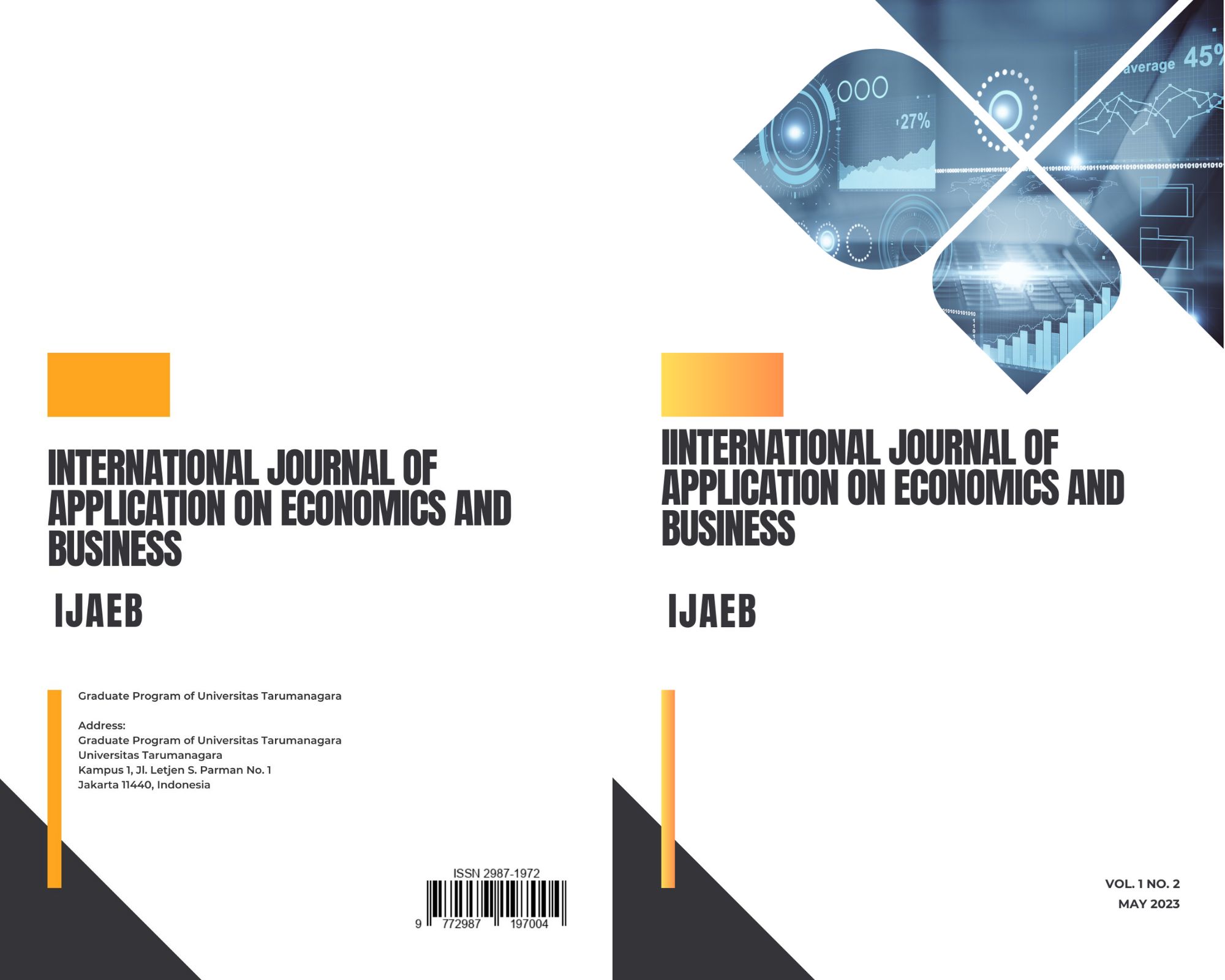STOCK MARKET REACTION TO WHO’S COVID-19 ANNOUNCEMENT IN ASEAN-5 REGION
Main Article Content
Abstract
The aims of this research is to analyze the stock market reaction in the ASEAN-5 region (Indonesia, Malaysia, Singapore, Philippines, and Thailand) to the announcement of the global COVID-19 pandemic by the World Health Organization (WHO). The method used is an event study with abnormal return as the independent variable. The sample in this study is the main stock index of ASEAN-5 countries. Empirical results showed that there was a significant and insignificant abnormal return on certain days around the announcement of the COVID-19 pandemic by WHO in ASEAN-5. Subsequent findings showed that there was no difference in abnormal returns before and after the global announcement of COVID-19 by WHO.
Article Details

This work is licensed under a Creative Commons Attribution-NonCommercial-ShareAlike 4.0 International License.
This journal provides immediate open access to its content on the principle that making research freely available to the public supports a greater global exchange of knowledge.
IJAEB by Graduate Program of Universitas Tarumanagara is licensed under a Creative Commons Attribution-NonCommercial-ShareAlike 4.0 International License.. Permissions beyond the scope of this license may be available at https://journal.untar.ac.id/index.php/ijaeb
References
H. Liu, A. Manzoor, C. Wang, L. Zhang and Z. Manzoor, "The COVID-19 Outbreak and Affected Countries," International Journal of Environmental Research and Public Health, 2020. DOI: https://doi.org/10.3390/ijerph17082800
H. Takahashi and K. Yamada, "When the Japanese Stock Market Meets COVID-19: Impact of Ownership, China and US Exposure, and ESG Channels," Research Gate, 2020. DOI: http://dx.doi.org/10.1016/j.irfa.2021.101670
Kompas.com, "Today in History: WHO Designates COVID-19 as Global Pandemic," 11 March 2021. [Online]. Available: https://www.kompas.com/tren/read/2021/03/11/ 104000165/hari-ini-dalam-sejarah--who-tetapkan-covid-19-sebagai-pandemiglobal?page=all.
The Economist, "World News, Politics, Economics, Business, Science, Tech, Arts, Culture," 2020. [Online]. Available: https://www.economist.com/?gclid=Cj0KCQjw5oiMBhDtARIsAJi0qk3UCoC5jwllV_PynS0TD_hssPNn9gyWGOVOge4BJs4v39l6aePmK K8aApcVEALw_wcB&gclsrc=aw.ds.
E. F. Fama, "Efficient Capital Market: A Review of Theory and Empirical Work," Journal of Financial, vol. 25, no. 2, pp. 383-417, 1970. DOI: https://doi.org/10.2307/ 2325486
N. N. Taleb, The Black Swan: The Impact of the Highly Improbable, New York: Random House Publishing Group, 2007. DOI: http://dx.doi.org/10.1007/s11138-008- 0051-7
B. Singh, R. Dhall, S. Narang and S. Rawat, "The Outbreak of COVID-19 and Stock Market Responses: An Event Study and Panel Data Analysis for G-20 Countries," Global Business Review, pp. 1-26, 2020. DOI: https://doi.org/10.1177%2F09721509 20957274
L. E. Fotoh and N. S. Bongbee, "Event Study on the Reaction of Stock Returns to Acquisition News," International Finance and Banking, vol. 4, no. 1, 2017. DOI: http://dx.doi.org/10.5296/ifb.v4i1.10409
J. Hartono, Portfolio Theory and Investment Analysis, Yogyakarta: BPFE, 2017.
M. S. AlAli, "The Effect of WHO COVID-19 Announcement on Asian Stock Market Returns: An Event Study Analysis," Journal of Economics and Business, vol. 3, no. 3, pp. 1051-1054, 2020. DOI: http://dx.doi.org/10.31014/aior.1992.03.03.261
M. S. Yiu and A. Tsang, "Impact of COVID-19 on ASEAN5 Stock Markets," Journal of the Asia Pacific Economy, 2021. DOI: https://doi.org/10.1080/13547860.2021.1947550
S. Ma, The Efficiency of China's Stock Market, London: Ashgate Publishing, 2018, p. 302. DOI: https://doi.org/10.4324/9781351146920
Wikipedia, "Dow Jones Global Indexes," 13 March 2021. [Online]. Available: https://en.wikipedia.org/wiki/Dow_Jones_Global_Indexes. [Accessed January 2022].
A. Puspitasari, H. Siregar and T. Andati, "Analysis of Stock Exchange Integration of ASEAN 5," Jurnal Ekonomi dan Kebijakan Pembangunan, vol. 4, no. 2, pp. 187-206, 2015. DOI: https://doi.org/10.29244/jekp.4.2.2015.187-206



